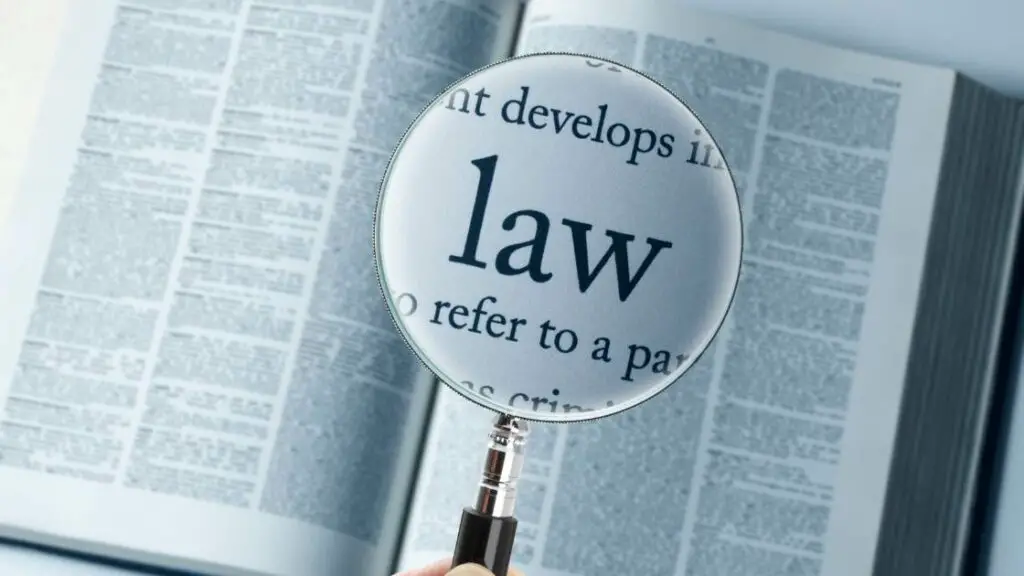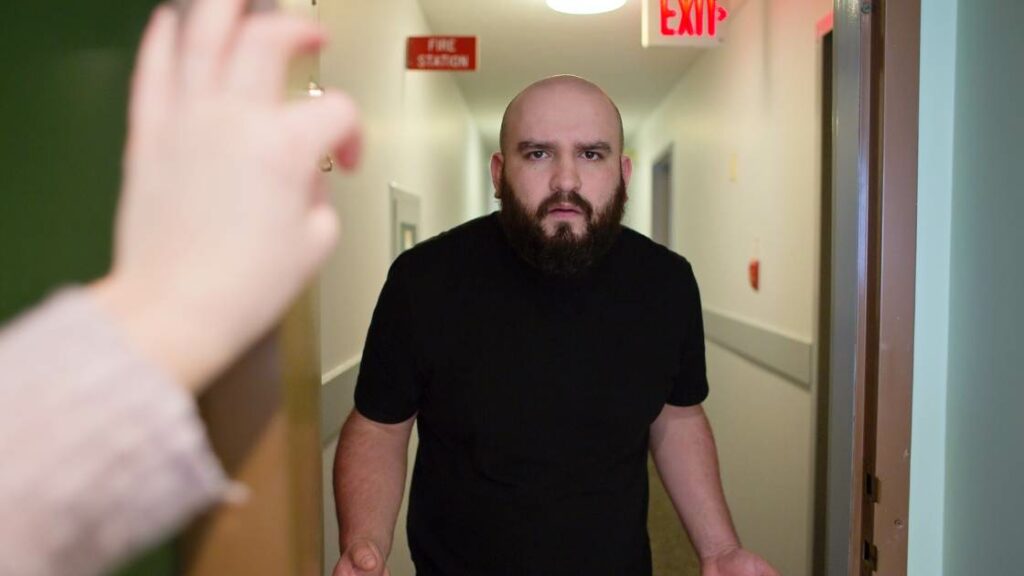Feeling unsafe in your own home is awful.
Your home is supposed to be your haven and a place where you can relax and enjoy some peace with your friends, family and loved ones. When a dangerous situation disrupts that peace, it is understandable that you will want to move out.
In this article, we are going to discuss (i) whether you can terminate your lease if you feel unsafe, (ii) various situations that may give rise to a right terminate, (iii) what you need to do exercise your right to terminate; and (iv) what you can do if neither the applicable laws nor your lease allow you to terminate early.
We’ll cover all of this in detail, but here’s the short answer to the general question of whether you can terminate your lease if you feel unsafe:
You can terminate your lease if you feel unsafe provided that your state and local laws allow it or your lease provides a right to terminate in your specific situation. Many states allowing early lease terminations if you are the victim of domestic violence, stalking, sexual assault, or other illegal activities.
The information contained in this post is for informational purposes only. It is not legal advice. You should seek the advice of a qualified legal professional before making any decisions relating to the topics covered by this article.
We may earn commissions from products and services that are purchased or recommended through our website as part of our affiliate partnerships. As an Amazon affiliate, we may earn from qualifying purchases.
State and Local Laws Often Govern Whether You Can Terminate Your Lease if You Feel Unsafe

I hate indefinite answers like “maybe” or “it depends,” but in this case, that is the only right answer. In most cases, if you just have a general feeling of unease about your neighborhood or dwelling that will not be enough to terminate your lease. But if you have fallen victim to or are directly exposed to specific illegal activities, then you may have a case for terminating your lease early, depending on the laws of your state and local municipalities.
We’ll cover specific situations (like the ones mentioned above) and discuss some of the state specific rules and requirements so you can have a sense of the overall legal landscape for these situations.
Note: If you want to explore your state’s laws, check out our 50 state reference table (including D.C.) that will link you to the official landlord tenants laws of your state.
Of course, you should also carefully examine your lease to see what it says and try to find provisions that may apply and give you an out.
Can I Terminate My Lease If I Live in a Dangerous Neighborhood?

Unfortunately, if you live in a dangerous neighborhood that alone will not be enough to allow you to break your lease.
Of course, there are certain safety conditions that your landlord should satisfy, such as using reasonable measures to prevent unwanted access to your apartment or dwelling (including working doors, windows, locks, etc.). If they fail to maintain the premises in a safe and habitable manner by not fixing these things promptly (there is generally a warranty of habitability that is implied in leases), then you may have a claim to terminate the lease early.
As with most things involving landlord tenant interactions, the devil is in the details, so you will want to check your state and local laws on this.
Can I Terminate My Lease If I Am the Victim of Domestic Violence?

A lot of states (like California and New York) have special protections in place for domestic violence victims in their landlord tenant laws. If you have fall within that terrible situation, you may have the right to break your lease without penalty and will be released from the obligation to pay rent for the remaining lease term.
If your state permits such early terminations, you generally must give formal written notice to your landlord of your intent to terminate the lease and comply with your state’s notice requirements, which may include 30 days (or more) written notice.
In many cases, your landlord may have the right to request evidence of domestic violence, which could include a protective order or a police report.
Can I Terminate My Lease if a Sex Offender Moves in Next Door?
Generally speaking, you cannot terminate your lease simply because there is a sex offender living near you. However, you should check your lease to determine if there are other ways to terminate your lease early.
You may want to discuss the situation with your landlord and see if sub-leasing or early termination is an option.
Of course, if the sex offender is threatening or stalking you or a family member, then you may have recourse under laws that govern that type of illegal activity. On that note…
Can I Terminate My Lease If My Neighbor Is Threatening Me?

You may be able to terminate your lease if you are being threatened by another tenant of your landlord and your landlord fails to remediate the situation.
Again, state laws will govern here. In many cases, drug dealing is also covered and landlords will be required to take steps to stop such illegal and dangerous behavior on their property. If they don’t, you may have a case for terminating your lease early.
The first step is to let your landlord know about the threatening and dangerous activity and give your landlord an opportunity to fix the situation. Of course, if your neighbor is posing an imminent and serious danger to you, then you should immediately contact law enforcement and protect yourself.
If the threatening activity is done by a neighbor that is not a tenant of your landlord, then your landlord’s hands are tied and taking care of that matter is not their responsibility. In that case, you may want to contact the landlord of the offending neighbor and try to get the situation resolved that way.
Can I Terminate My Lease if My Landlord is Threatening Me?
If the offending party is your landlord, then that is a serious issue that warrants swift action.
In some states like California, you may terminate your lease early if you are the victim of stalking or sexual harassment by your landlord. Source
Obviously, it’s a serious issue because your landlord has access to your dwelling and could pose a risk to your safety at any time. Generally speaking, you will need some proof of this type of illegal landlord behavior in order to break your lease early.
Again, if the threat is serious and imminent, you should take immediate steps to protect yourself by contacting law enforcement.
Talk with Your Landlord and Discuss Early Termination Options
If you don’t feel safe in your dwelling but the law and your lease do not provide a clear way to terminate your lease, you may still want to talk with your landlord to discuss early termination options.
A lot of times landlords don’t want an unhappy tenant because they fear that the tenant will become a problem tenant. And if the tenant has already expressed their concern around feeling unsafe in the unit and something happens to them, the landlord could be pulled into a situation that he does not want to get pulled into.
Landlords will want to avoid this so in a lot of cases, they may be willing to find a mutually workable solution.
For example, you can offer to find another suitable tenant for the unit at the same rent. You will need to market the property, etc., but if the landlord is willing, this may not be a bad option. Of course, the landlord may not agree if the lease doesn’t permit sub-leasing, but it doesn’t hurt to ask.
Related Reading: If you want to learn more about how to break your lease early by finding a new tenant, check out my full article on the topic here.
Or you could offer to pay the landlord for the right to exit the lease. If you don’t want to shell out any money, you can suck it up and wait for the lease to end. You will need to read the lease carefully to make sure it does not “auto-renew” though (or if it does, you must remember to provide timely notice to the landlord that you don’t want to renew).
A final option you can use if all of the other ones fail is to just vacate the property.
Now you will likely be on the hook to pay the remaining rent in most cases. But in many states, the landlord will be required to mitigate their losses and will need to find a replacement tenant. Once the replacement tenant comes in and starts paying rent (assuming it’s at least the same rent as yours), you will be off the hook for the remaining rent payments.
Bear in mind that, although they are obligated to try to find a replacement tenant, they may not be able to do so quickly (or at all) if the rental market is soft. That means you will be responsible for any remaining rental payments under the lease until they can do so. That could be a lot of money if you have a long time left on your lease.
Another risk of breaking your lease like this is that a landlord may report any non-payment of rent to credit reporting agencies and take you to court. These actions can have a serious and negative impact on your credit score, which could affect your ability to rent a new place in the future.
It’s definitely a gamble and has a lot of potential downsides, so you should only consider this as a last resort.
But before you choose this final option, consider whether there are any other grounds for termination that we haven’t covered already.
Check out my full article on how to break your lease early without penalty for more details. It includes 11 situations where you can terminate early (plus one bonus option that applies in all situations).
Conclusion
Feeling unsafe in your own home is a horrible situation, but the good news is that you may have some solid options to terminate your lease early. Make sure to check your state and local laws (as well as your lease) to see what options are available and take action.

